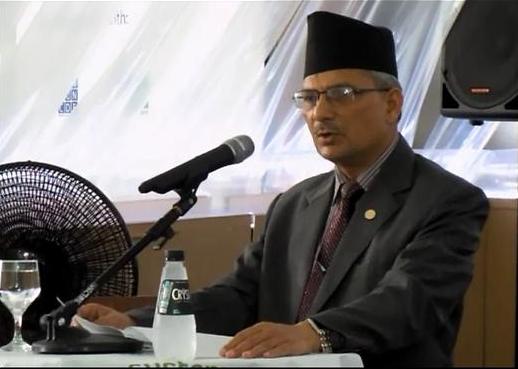
News
Stop talking about the future we want, start acting for the present we need22.06.2012
Mountain Partnership @ Rio+20
Rio de Janeiro (Brazil) In his opening remarks at the high-level event on mountains and Rio+20, held at the Mountain Pavilion on 21 June 2012, Nepal's Prime Minister Dr Baburam Bhattarai lauded the Mountain Partnership for its advocacy work. "We have to set in motion a new development paradigm that promotes sustainable development in an inclusive manner," said Dr Bhattarai. Among the various regional and international institutions active in promoting research and collaboration, Dr Bhattarai particularly thanked ICIMOD, "a key institution that has been active in our region for over a decade. Nepal has been promoting the mountain agenda in many ways," he went on to add. "It was with this objective in mind that we launched the Mountain Initiative in Kathmandu, with its Call for Action on mountains." In turn, ICIMOD's Director General David Molden acknowledged the crucial role played by Nepal, along with other countries and institutions, in negotiating the mountain text finally reflected in the outcome document of Rio+20, "one of our greatest collective achievements." The title of the high-level meeting, "Global call for action on mountains", made direct reference to the key document produced as a result of the Kathmandu high-level ministerial meeting held in Nepal in April 2012. During Rio+20, the government of Nepal took the initiative of providing a space to promote a synergistic approach, joining forces with Peru and Switzerland - three mountainous countries representing diverse continents. "These and other actors worked hard towards the present stage of the outcome document. The three paragraphs on mountains lay out a long-term vision for a holistic approach for sustainable mountain development," said Ambassador Acharya, Nepal's Mission to the United Nations. In his address, the Vice Minister of Peru, Gabriel Quijandria, observed how "We have gone a long way in the discussion on mountains since the International Year of Mountains in 2002. Mountain countries must be on a common position on climate change, biodiversity loss and desertification." Manuel Bessler, Assistant Director General, Swiss Agency for Development and Cooperation, noted that "Among the various Pavilions I have been visiting during Rio+20, I have only seen one Pavilion where the theme is a global theme and not a country - and that is, the Mountain Pavilion. This is the right way forward. Mountains do not stop at frontiers or borders." Ede Ijjasz, Sector Director at the Sustainable Development Department, World Bank, reminded participants in the meeting that "Now is the time for action. The World Bank has been the largest development agency in mountain regions, with over US$ 66 billion mobilized to really bring the attention of the world to these regions." Interventions from the floor shared continued commitment to sustainable development, to highlight even further the value of mountain ecosystems. Olman Serrano, Mountain Partnership Secretariat Coordinator, reiterated the willingness of the Mountain Partnership Secretariat to continue implementing the changes required to transform the Partnership into an effective instrument. This would entail counting on the support of non-mountainous countries, which depend so heavily on mountain resources such as fresh water and renewable energy; as well as working hard on strengthening effectiveness. "As Mahatma Gandhi said, You have to be the change you want to see in the world. That's why we have initiated a process of change involving all members and requiring their active participation, already in February." Miguel Saravia, Executive Director of CONDESAN agreed with Mr Serrano: "Sustainable mountain development is not just a mountain issue. It's much broader than that. That's why we must stop talking about the future we want and start acting for the present we need."
|
Mountain Partnership
| Our work
| Focus areas
| Follow Us Subscribe to Peak to Peak Newsletter
|
